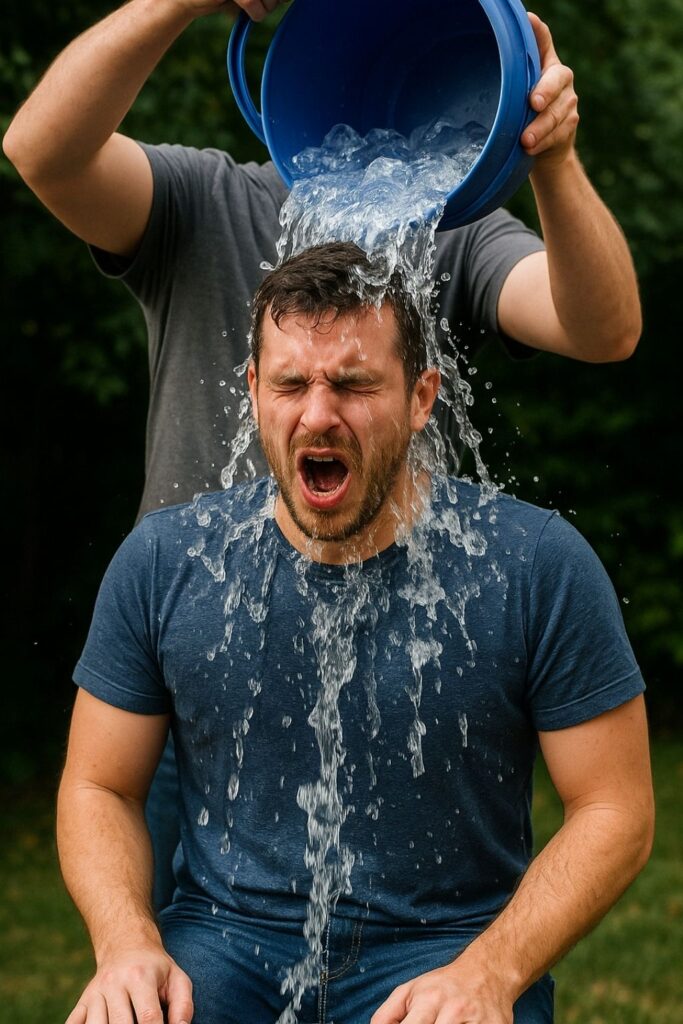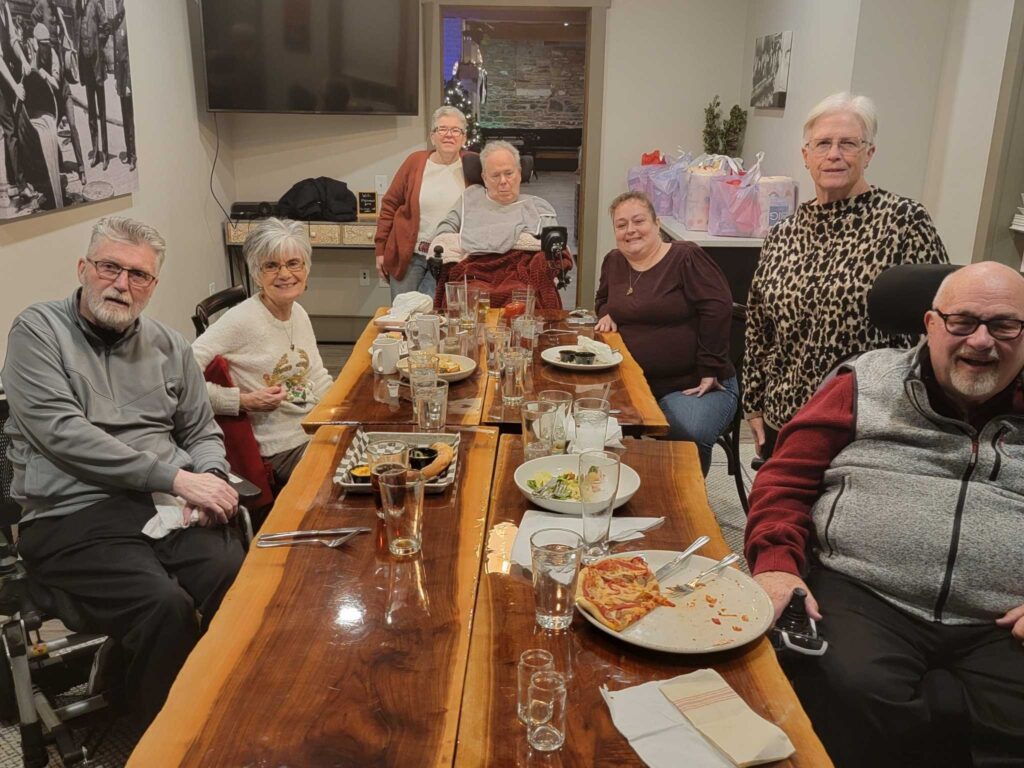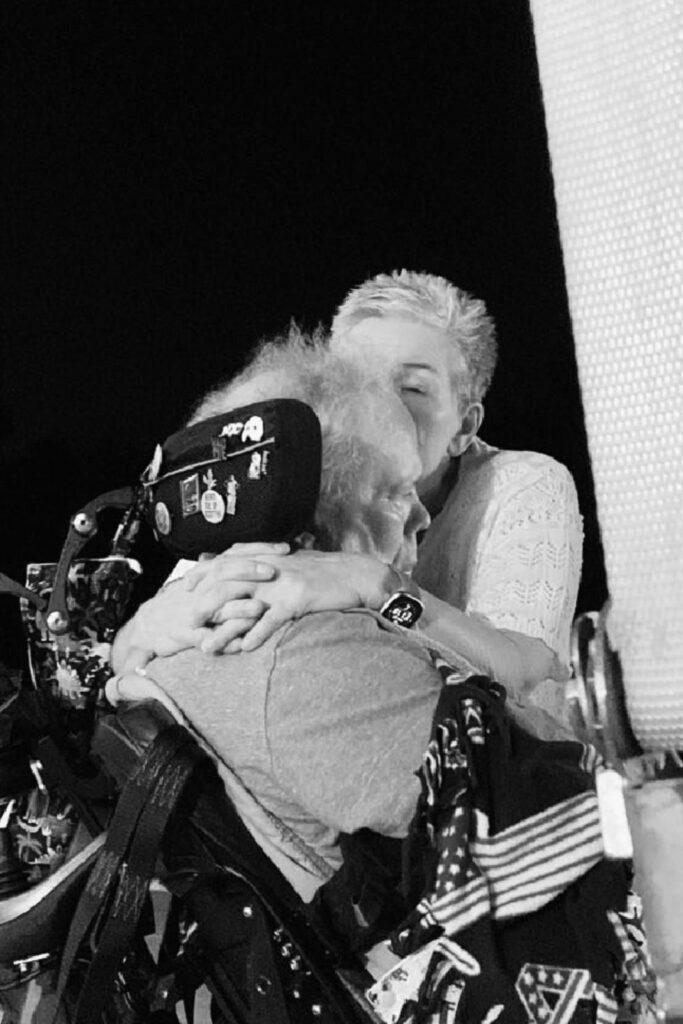
You might remember it. A bucket. A shiver. A splash. Laughter that sometimes masked confusion. In 2014, the Ice Bucket Challenge swept across the internet. It was playful, chaotic, and scroll stopping. People drenched themselves in ice water to raise awareness for ALS, commonly known as Lou Gehrig’s disease. Millions joined in with some taking it a step further and donating to ALS research. But many walked away unsure of what they’d supported or if they supported anything at all.
That’s where it began. And that’s where it touched Lura Sawyer for the first time. Back then, she was just another observer watching buckets tip. But she didn’t pour the water or click the donation link. ALS was just a word. Not a reality. Not something she thought would ever reach her doorstep.
“In 2014, I saw this challenge going on and thought, why. Why would I want to dump ice over my head?” Lura shared. “I had heard of ALS, known to me as Lou Gehrig’s disease. I didn’t think much more about it… Little did I know, one year later, I would be living the ALS life for the next 10 years and most likely the rest of my life.”
She wasn’t the only one. The challenge spread fast, but its meaning lagged behind. Yet it raised over $115 million for ALS research. It funded breakthroughs. It put ALS on the map.
But, like all viral trends, eventually the buckets emptied, the noise faded and the world moved on.
When a Symbol is Reclaimed…and Forgotten
This year, the Ice Bucket Challenge is back. It’s returned with familiar imagery of ice water, wide eyes, and shocked laughter, but its focus is different. This time, the movement is aimed at mental health awareness.
It’s a worthy cause, but for those still fighting ALS, it feels like the bucket was emptied and filled again without asking who held it first.
There is confusion and a sense of something sacred being reused without memory. For those who’ve carried ALS for a decade or more, the ice bucket challenge is not just a stunt. It’s a symbol. A moment that mattered. That changed things. That made people look.
Lura has seen the shift firsthand. Back then, most people didn’t even understand what ALS was. Now, she says, there’s more awareness and more willingness to learn. “The ALS world has changed a lot over the 10 years I’ve been in the middle of it.” She’s no longer watching from the sidelines, she’s in the fight.
This time around, it feels like someone’s taken the ALS flag and stitched a new name across it.
Why It Still Matters

At Let Hope Grow, we support mental health fully and fiercely. No diagnosis comes without it. ALS doesn’t stop at the body. It weighs on the mind, the heart, the spirit. Caregivers often carry the heaviest emotional burdens, all while standing in the shadows. Patients face a future that becomes physically smaller by the day. So yes, mental health must be spoken about, loudly and without shame.
But this new conversation cannot erase the one that was started in 2014. It must grow beside it.
If you’re taking part in the new challenge this year, we ask only this: remember who came before. Say their names. Learn what ALS really is. Share what the first Ice Bucket Challenge stood for. Donate, if you can. Support the families who are still in this fight. Learn about our story and our mission. Read ALS caregivers’ journeys, and understand the toll this disease takes.
This isn’t about claiming ownership over a movement. It’s about memory. About honoring the grief that changed us and the awareness and support that must continue. It’s not either/or. It’s both. Always both.
The Water Still Falls

So go ahead, let it fall. Let the water shock your system. Let it jolt you awake. Not just to the cause, but to the cost. Let it also invite you into a deeper conversation. The kind that doesn’t go viral but stays with you long after your shirt dries.
ALS needed you then. It needs you now. And it always will.
And we at Let Hope Grow are still here. Carrying buckets of a different kind. For the patients, the parents, the children, the ones who never poured the water but now live in its wake.
Join us. Remember with us. Act with us.
ALS didn’t end when the water stopped falling in 2014. And when the virality fades again, we will still be here advocating, educating, and nurturing hope.